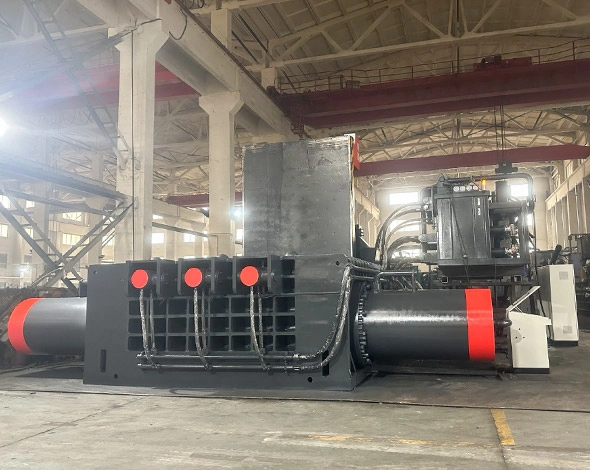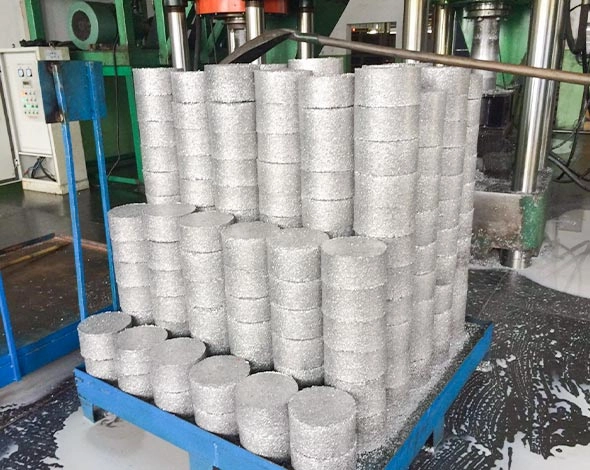In today’s climate of ecological consciousness, the recycling sector is crucial in advancing sustainable growth and development.
Among the many tools and technologies employed by the industry, scrap metal balers have become the cornerstone of the recycling process.
This article delves into the environmental impact of scrap metal balers, highlighting their significance in reducing waste, conserving energy, and mitigating pollution.
The Role of Scrap Metal Balers in Recycling
Scrap metal balers serve as essential equipment for condensing assorted metal scraps, including types like aluminum, copper, steel, and iron, into tightly packed, easy-to-manage cubes.
These cubes simplify the tasks of transportation, storage, and further recycling processes, compared to their original, unprocessed state.
Through their effective reduction in waste volume, these balers contribute significantly to diminishing the amount of waste destined for landfills, while simultaneously optimizing the recycling procedure.
Reducing Landfill Waste
One of the main ecological advantages of using a scrap metal baler is that it greatly reduces the amount of waste going to landfills.
Metals are durable and non-biodegradable, meaning they can occupy landfill space for centuries, contributing to land overuse and soil contamination. Balers compress the metal waste, thereby diminishing its footprint and preserving valuable land resources.
Energy Conservation and Emission Reduction
Recycling metals using balers is far less energy-intensive compared to extracting and processing virgin materials. The energy saved in recycling metals can be substantial.
For example, the process of recycling aluminum uses 90% less energy than the process of manufacturing aluminum from raw materials. These reductions in energy consumption not only reduce the greenhouse effect but also contribute to the global environment.
Resource Conservation
Metal balers aid in conserving natural resources. By recycling scrap metal, the need for mining new metal ores is significantly reduced.
This approach not only conserves scarce resources but also reduces the ecological impact of mining activities, which includes the destruction of natural habitats and contamination of water bodies.
Economic Benefits and Job Creation
Beyond environmental impacts, scrap metal balers contribute to economic sustainability. The recycling industry creates jobs and income supported by the efficient use of balers. This economic boost is crucial for supporting community development and fostering a circular economy.
Challenges and Future Directions
Despite their benefits, challenges such as the initial cost of balers and the need for continuous technological advancements remain. Future directions involve the integration of smart technologies for more efficient baler operations and further reduction of the environmental footprint.
Conclusion
Scrap metal balers are crucial in enhancing the effectiveness of recycling processes. Their impact on reducing landfill waste, conserving energy and natural resources, and minimizing pollution is profound.
The role of these technologies is becoming increasingly important as we make strides towards a more sustainable future. Encouraging the widespread adoption of scrap metal balers and continual technological advancements will be key to maximizing their environmental benefits.



